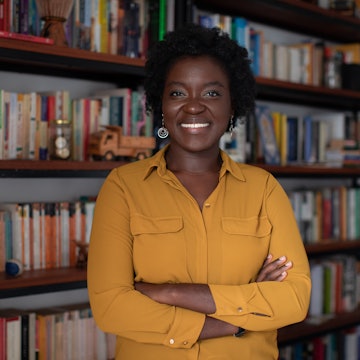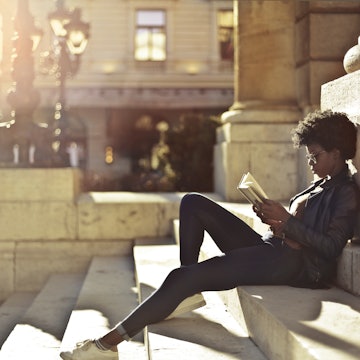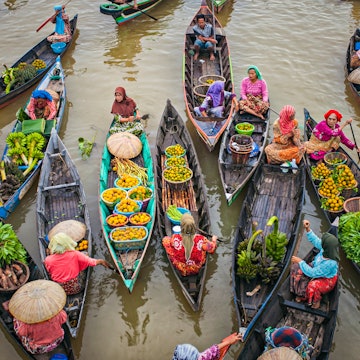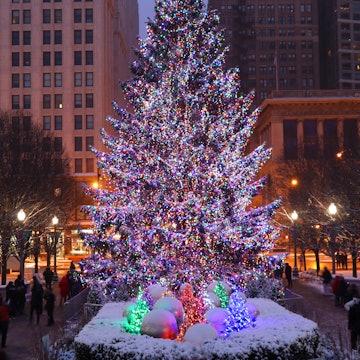
"Places always surprise me" – Author Porochista Khakpour on traveling during historic moments
May 26, 2020 • 11 min read

Porochista Khakpour's new book, 'Brown Album,' details her experiences as an Iranian-American woman from the 1980s to the present day. © Marco Bottigelli / Getty Images
Porochista Khakpour has survived more than a few historic moments that shaped a country's character, culture, and self-consciousness. When she was just a baby, her parents fled their comfortable lives in Tehran as Iran sped into revolution and war with Iraq. The family landed in Los Angeles, where they were neither fully part of mainstream '80s Valley culture nor the glitzy Persian diaspora of "Tehrangeles." Later, as a young New Yorker, Porochista bore witness to the September 11th terrorist attacks – and the anti-Muslim sentiment that followed.
In a way it's apropos that her latest essay collection should happen to be released in the midst of the COVID-19 pandemic, which has come with its share of xenophobia and sharply drawn class distinctions. Brown Album collects decades of Porochista's work, yet never wavers from the direct, comfortable tone of someone speaking to fellow Iranians in America – rather than educating those less familiar with being other – as she discusses her personal experiences as a woman and an immigrant.

Like many essay collections that grapple on some level with place, Brown Album feels in part like a travelogue as Porochista charts her trajectory from childhood to the present day. She recalls her parents "dancing to disco-fevered Go-goosh at full blast" in 1970s Iran, the facades of LA's classic "dingbat" apartment buildings and an 24-hour Elvis Presley museum in the southern US. She recalls being deeply moved by the azan call to prayer in Jakarta, Indonesia, and tucking into bowls of kaleh pacheh – a sheep's head stew – at the Canary Restaurant in Westwood with her mother.
These richly textured descriptions of place serve to illustrate something immigrants know better than most: that how we are viewed by others, and understand ourselves, is as much a matter of geographic and cultural context as it is inherent truth – perhaps even more so.

We caught up with Porochista, who is social distancing at her apartment in Queens, to tell us more about Brown Album, and what's it's like being a life-long traveler used to experiencing the world at historic moments. What follows is an edited interview.
Did you aspire to travel much in your childhood? Where were some of the earliest places you fantasized about visiting, and why?
As a child I was obsessed with traveling to Africa – Kenya specifically. The only magazines we had in our home were National Geographic and Scientific American, and I got into the former. For some reason, I got really hooked on some old feature on the Masai and I just started reading about them all the time. I wanted so badly to visit Kenya. I still do actually. Aside from that, travel was somewhat traumatic as my early memories were all of fleeing Iran from one country to the next at the beginning of the war. Travel was quite tied to the refugee experience.
A couple of the essays in Brown Album originally appeared in Lonely Planet anthologies, or got their start in discussions with travel editors like Hanya Yanagihara who worked at other publications. What distinguishes travel writing versus other place-based writing for you, if there is a difference? What is your approach to the genre?
I deeply enjoy travel writing – or just even essays for travel magazines (I am working on my second essay for Conde Nast Traveler right now). I think setting is just a very big interest of mine. As someone who was displaced from my birth country at a young age, moving around has just been my natural state. Even in New York City, where I have mostly lived, I have moved from borough to borough and neighborhood to neighborhood. I am always going from place to place. And I have a deep interest in seeing so much of this world – places always surprise me.
I never thought that so much of America’s rural South and Midwest would draw me in, or I never imagined I would have loved Australia as much as I did. I was also weirdly dreading returning to Paris this past winter – I never really identified as a “Paris person” – it had been 20 years since I had visited and I profoundly loved it this time around. I also found Jakarta much more lovable than, say, Bali – the same with Mexico City over Tulum. As an immigrant and refugee I really enjoy using setting as my hook – it’s an interesting way to explore identity, from the outside in.

We know from the final essay in this collection that you aren’t a big fan of Joan Didion or the way she’s laid claim to California in pop culture. Who are some of your favorite writers who really capture a strong sense of place or are coming at travel writing from a less detached perspective?
Well, I love all the American Southern writers – like Faulkner, as I mention in one of the essays. Flannery O’Connor, Carson McCullers, Cormac McCarthy even. I find there is a lot of fire in the writings from he American South – and much is fraught and troubling of course, so those writers have to be incredibly engaged.
I love the haunted Caribbean and Paris of Jean Rhys’s work. I love the odd magic of South Korea in Han Kang’s works and the Scandinavia of Dorthe Nors’s writing. My favorite writers are in the Latin American magical realist category and there is so much place there – I love the Latin Americas of Garcia Marquez, Carpentier, Donoso, Lispector, and so many more.
Two of your essays in Brown Album – “An Iranian in Mississippi” and “A Muslim-American in Indonesia” are, in part, about how we become different versions of ourselves in different places, and the way even unfamiliar locations can have a whiff of home. What is it about seeking out unfamiliar destinations can put us more in touch with pieces of ourselves and our sense of our own place in the world?
I think one needs surprise and one needs to be shaken out of one's normal context to really see themselves and their world. To be devoted to your everyday experience without much of a wrinkle in it is to fall asleep in a way. Whether I was in the Deep South or in Southeast Asia, I was able to divorce myself from my own standard self-image and really discover who I was. When you toss out familiarity, you are forced to reckon with identity in a much more extreme way.
Food appears in so much in your writing, from the fried catfish you try in Mississippi to your mother’s herb, kidney bean and lamb stews to "nonstop nasi goreng" in Jakarta. What’s been your favorite or most memorable culinary experience while traveling?
Well, in America it is definitely Southern food – I just love it. You can of course find Southern food in soul food traditions of my old neighborhood Harlem too. Harlem just was full of the best food. I also love Chicago, another city I lived in for a while, for food. Outside of America, I love all Asian foods. I grew up in an East Asian community and live in one now in Queens, and for me East Asian food is just very comfortable. Particularly Korean and Chinese, and secondarily Japanese foods.
I was surprised to find Prague had a lot of interesting food. Probably the highest standard of food I had was in Israel-Palestine – every meal I had whether from a rural stand or at a fancy cafe was stunning. Out of all the places I’ve lived, maybe Santa Fe had the most exciting cuisine – I miss blue corn enchiladas with Christmas chile, lavender shakes, and frito pies at the Five & Dime.

You’ve spoken before about an interest in moving overseas, and touch on getting your US citizenship in Brown Album. How do you approach the idea of expatriation, based on your own family’s history of immigration from Iran? Where do you think you’d feel most at home?
I am currently working on figuring out a move to East Asia. Hong Kong was on my list as I have friends there but the situation right now there is very bad. Seoul is high on my list and seems the most likely, given teaching jobs and all that. I am interested in Taiwan and Tokyo as well, but, yeah, East Asia is where I have friends and cultural familiarity. I have always wanted to live over there but America recently has become too messy for me, so I think it’s a good time.
Another aspect of your identity is one you wrote about in your previous book, Sick, and address in Brown Album as well, is chronic illness. You’ve traveled quite a bit pursuing treatments for Lyme and trying to find mold-free spaces to recover your health. Could you tell us more about what it’s like traveling as someone who is chronically ill, and what it’s like experiencing places through that lens?
Ah, it is very challenging of course. I travel with a portable oxygen concentrator, the only one FAA approved. I use wheelchairs at airports often. I just have to be very prepared. Luckily I have not had many disasters with plane travel. But I have had to go from place to place to find doctors to treat me. Luckily I am healthier now but I always keep a short list of places I will need to go in case I get sick again, like Germany where they have great Lyme treatment for example.
You’ve lived a lot of lives and experienced a lot of places in different ways, from your days as a nightlife writer covering the NYC club scene to traveling for medical care. What advice would you give for getting a feel for a city and sinking into a new destination? What’s your travel style these days?
Well, COVID-19 sure has stopped travel. But just before lockdown I was in Europe for a few weeks – London, Edinburgh, and Paris. And I realized I did what I always did – I remained very flexible and went by the suggestions of locals. I rarely ever choose my own dish in a foreign country – I always ask the waiters to suggest, or if I am in a bar I try to have a local beer or some regional specialty. I think that is really important.
When I used to drive across country in America a lot, my rule was to only listen to local radio – no podcasts, no playlists. I really wanted to inhabit the places I was in, like a local. I think being a tourist is a really bad way to approach any new place. You have to figure out how to trick yourself into being a local in some way.
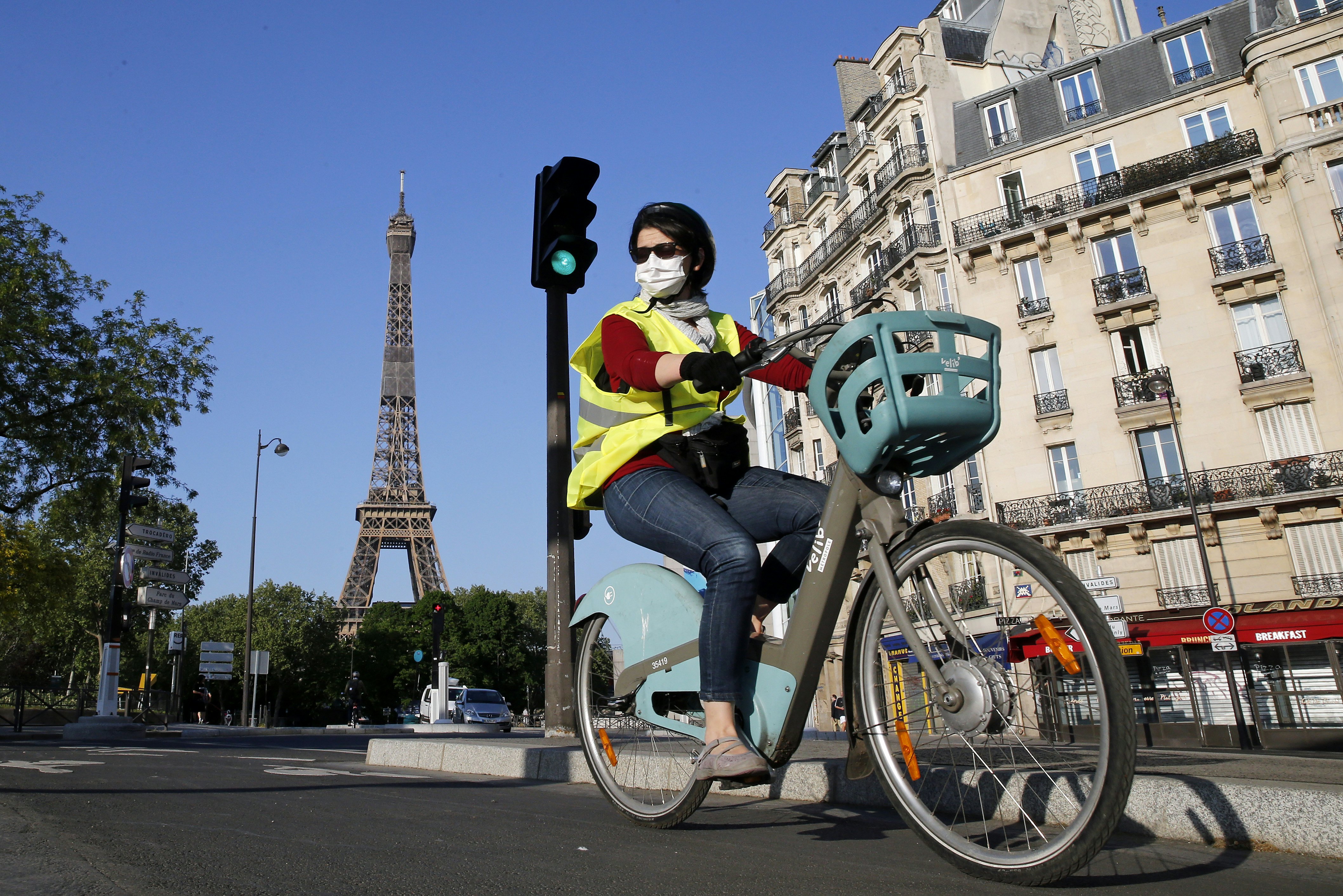
What was that like being abroad right before travel came to a screeching halt?
Yes! Well, it was very odd. I was in Paris and reading the news from Italy – we were right next to Italy so everyone was quite worried. And it seemed like the French were really not taking it seriously – in mid-March I saw no masks in Paris and it still seemed like people were partying deep into the night. But I went by the Eiffel Tower just two hours before they turned the lights off and locked it down. And I left Paris just hours before the city went into lockdown mode. So I was quite lucky.
I left London on March 16 – my flight was cancelled and rebooked and when we landed in JFK we had our temperatures taken in a waiting area in the airport. All very bizarre. I feel lucky that I had that little trip just before this all – of course, if I had known how bad it was going to get, I don’t think I would have been so bold to even go abroad.
You write in Brown Album about events that have had an outsize impact on the global travel industry, like the 9/11 terrorist attacks in New York City. What do you think some of the long-term effects of the COVID-19 pandemic might be on how we travel?
Oh gosh, well, I think we will be wearing masks like much of Asia for a long time. I myself have worn masks for years, given the state of my immune system. I can’t imagine riding a subway without a mask. But I think more people will do that now. I wonder if we will all avoid hugs and handshaking and turn to bowing more. Who knows. But I do know it will be a different world once this dies down a bit. And I am sure it will not be the last pandemic.
Where is the next place you’re hoping to visit, once it’s safe to hit the road again?
Well, other than moving to Asia, I think I would like to visit Iceland. It seems affordable and easy at the moment. I would also really like to go to South America and Africa, two continents I have not dipped into. Morocco has been a big dream of mine, as has been Jamaica, and Greece. Just thinking of travel opportunities makes me so happy.
Find out more about Brown Album: Essays on Exile and Identity.
You may also like: I fled civil war. Now I travel the world
A good weekend is not hard to find in Flannery O'Connor's Milledgeville, Georgia
Writer Mark O'Connell on preparing for the end of the world
Get more travel inspiration, tips and exclusive offers sent straight to your inbox with our weekly newsletter.





